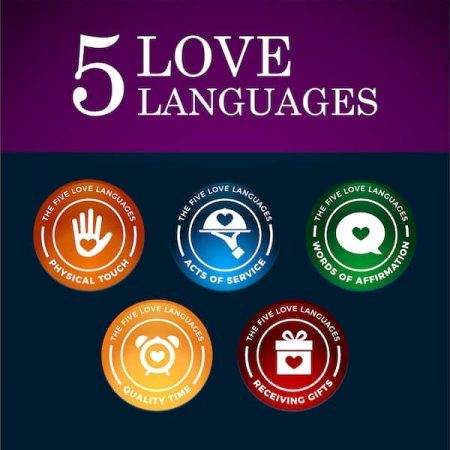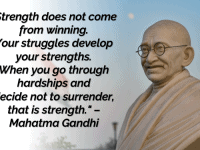Tina Hallis's Blog, page 12
April 25, 2021
Are Your Relationships Suffering Because You Don’t Use the Right Language?

I make my daughter breakfast and pack her a nice lunch for school because I care. I help out with the dishes, even when it’s my husband’s turn to do them, because I care. But what if these things don’t matter to them, and they don’t feel loved by my actions?
My love language is “Acts of Service.” When my daughter helps carry in the groceries even though I don’t ask her to, I feel she cares. When my husband makes the bed or offers to help with dinner, I feel he cares. So it’s natural that I would show my love for them using my language. But what if it’s not theirs? And I know it’s not . . .
I know my daughter’s love language is “Quality Time” and my husband’s are “Words of Affirmation” and “Physical Touch.” Yet I forget. Even though I know how important it is to use the language that others need to feel loved, cared for, and appreciated, I keep defaulting to my own.
That’s why I’m writing this tip; to reflect and consider what I can do differently. And because I’m guessing this may be difficult for you, too.
Carol Rogers, the famous humanistic psychologist, said that one of our core humans needs is to feel valued, respected, and loved. But what makes one person feel valued and loved may be different from another person. Dr. Gary Chapman describes these differences in his book, The 5 Love Languages. They are:
Words of AffirmationActs of ServiceReceiving GiftsQuality TimePhysical TouchIt’s also challenging because we expect our family and friends to read our minds and know what we need, instead of us asking for it. It may feel uncomfortable to request “Acts of Service” from our partner or kids. A helpful solution is for your and your loved ones to take one of the quizzes here and talk about your results.
Dr. Chapman talks about how so many relationships suffer needlessly because we’re not speaking the same language. What a tragedy to think you may be expressing your love every day without knowing that the meaning is lost on the other person! Instead, they may be feeling neglected and isolated. Learn and speak their love language now.
April 18, 2021
Which Stories Do You Share, Pick-Me-Ups or Bring-Me-Downs?

As I was sitting in the waiting room, I could overhear a couple of the employees talking. One was sharing how frustrated she was because a retailer had shipped her package to the wrong address, delaying the shipment. She went on about her conversation with them and how annoyed she was. They had given her the runaround and had made her sorry she had done business with them. It sounded she had told this in-depth story several times before.
Fast forward to today. We were visiting with some friends and sharing memories of past adventures. As the conversation turned to run-ins with spiders and snakes, my husband was reminded of his mouse incident. He told us how it was a chilly fall day so he was dressed in a few layers and a coat for his walk down the driveway to get the mail. Next to the mailbox, he noticed a bunch of twigs in the box for the newspaper, so he reached in and quickly pulled them out. As he started to cross the road back over to the driveway, he felt a funny stinging sensation at his neck. He wondered if it was a bee. Then he felt something moving and scratching between his shoulders.
My husband started slapping at his back as he tossed the mail in the air. He quickly stripped off his coat and then his other layers. He was jumping around making high-pitched screeches. Standing in the middle of the road, stripped to the waist in the fall chill, mail scattered all around, he noticed a small mouse run out from his discarded t-shirt.
As he recounted his experience, he laughed as he told us how the mouse must have run up the sleeve of his coat when he grabbed the pile of twigs. The rest of us were laughing as we visualized the scene.
Have you noticed how a negative story tends to remind us of our own negative stories? And when someone finishes sharing, we’re ready to jump in with our own frustrating incident? But if someone tells a funny or encouraging or good news story, what happens?
This week, see if you can steer your conversations towards Pick-Me-Up instead of Bring-Me-Down stories. Be a positive ripple!
April 11, 2021
How Strong is Your Self-Command Muscle? Test It with the PQ Assessment

It’s so much easier to be positive and optimistic when life is going our way. But what if someone makes you mad? How long does it take for you to get over it? Or if you make a mistake? How long does it take before you forgive yourself? Or what if a situation doesn’t go well? How long does it take before you’re no longer stressed, discourage, or frustrated by it?
I’ve learned that how quickly we bounce back is related to the strength of our self-command muscle. This is a term that Shirzad Chamine uses in his Positive Intelligence training I’ve been taking. And what’s really cool is he’s created a test so we can actually measure its strength! It’s called the PQ assessment. Shirzad recommends taking it on different days and even different weeks to get an average score that better represents your average day.
I’ll be honest. This assessment has helped me realize that I’m a pretty positive person. My scores are usually in the 70s and 80s. Shirzad says that only 20% of people score above 75. I’m lucky and grateful for my positive wiring, but I know that these past 10 years of studying, teaching, training, and practicing positive psychology have helped a ton!!
The PQ assessment has also helped me realize that many people live with a very negative voice in their heads that’s bringing them down and making them miserable. When our inner judge and accomplice saboteurs run our lives, it can come with a price; a price of isolation, feeling numb, or feeling broken. These nasty characters can cause us to be complainers, bullies, and grumps. They can make us defensive, short-tempered, and just plain unpleasant to be around. And, if we try to hide them, it can make us exhausted.
But the great news is we can all strengthen our self-command muscle!! We can practice pausing, noticing, and choosing our thoughts and actions. We can look for the gift in every situation. We can practice empathy and curiosity. AND we can make all of these easier by intentionally spending more time in positive emotions with some simple tips. As a reminder, it’s not that negative emotions are bad. They’re a signal from our survival instinct that we may need to take action to protect ourselves. We need to reflect on this information and wisely choose how to respond.
April 4, 2021
The Battery Was Dead! The Difference Between Judgment & Discernment

We got in the car to head home, only to find that the battery was dead! I noticed my initial thought, “Oh no! This is bad!” Then I switched my focus and told myself it wasn’t a big deal. We soon found someone to help us jump the battery and we were on our way.
This is a recent example of my internal Judge at work. In my Positive Intelligence training, I’ve been learning how we all pass judgment on ourselves, others, and situations. Judging is a normal survival instinct, yet these kinds of thoughts bring us down and hold us back. So what can we do?
The last three steps in my “Immunity to Negativity Formula” are Pause, Notice, Choose. The idea is to get better at noticing when our Judge is at work and to choose a different thought. Yet isn’t that judging our thoughts?
This is where the difference between discernment and judging comes into play. One way to think about the difference is that judging brings on negative thoughts and emotions. On the other hand, discernment acknowledges the situation without labeling something, someone, or ourselves as bad. Instead, we can use empathy or curiosity to decide how to respond. We can also look for what we can learn; about ourselves, about others, about what we’d do differently in the future. The result is a more neutral or even positive feeling.
For example, my judge told me that the dead battery was a bad situation, which made me feel frustrated. But when I paused and noticed my reaction, I could acknowledge my survival instinct at work without labeling it or the dead battery as “bad.” Then I could choose to realize it was easily fixable and remain calm.
As you practice pausing, noticing, and choosing this week, remember it’s not about judging your thoughts as bad. Instead, shift to discernment and acknowledge your judge when you hear it in your head. Then, instead of letting it control you, choose a response that comes from kindness, empathy, or curiosity.
March 27, 2021
I Had a Rough Day! Let Me Tell You About It

At the end of a rough day, do you ever vent or complain? Maybe you had to deal with a difficult customer, or there was a frustrating meeting, or you just had too much to do. It’s normal for us to remember and to share all the bad things that happened to us. It’s part of our survival instinct to replay and dwell on problems and stresses in our lives.
The great news is that we can make it easier to shift our thinking and to have more enjoyable days by also remembering the good things that happened. This is not natural for us and takes some effort, especially at first. That’s because our brains are designed to ignore all of the positive stuff; we don’t need to notice the good stuff because it’s not a threat and doesn’t require us to take action to protect our survival. In fact, our brains would call anything positive, “Boring! Who cares?”
For example, how often do you appreciate the green lights when you’re in a hurry? How often do you notice the easy customers compared to the difficult ones? How often do you thank your helpful co-worker compared to complaining about the one who never seems to get their part of the project done?
Remember, this is normal! But the good news is we can train our brains to get better at also noticing the good.
Try this exercise. Every evening at dinner or bedtime, think back on your day and recall three good things. These can be simple, easy things like having that green light when you were late or the fact that your favorite socks were clean. Then either write them down or share them with a friend or family member to change your brain even faster. Do this in addition to sharing the difficult parts of your day.
March 21, 2021
A Year of Surviving the Pandemic: Here’s a Long List of Ideas to Help You Keep Going

My weekly tip for March 15, 2020, a little over one year ago, was “How to Find More Calm When Life is Anything But.” Our lives had just been turned upside down and we had no idea what lay ahead or how long it would last.
Here we are in March of 2021, seasoned pandemic survivors. Yet there is still so much uncertainty and so much to worry about. Will there be another surge because of the variants? How long will immunity last from the vaccines or having had the virus? When should we feel safe gathering in larger groups? What will this new normal be like? And that’s on top of our normal life worries!
Here’s the great news; you’ve made it this far! And, I’m betting you’ve learned a little along the way. Hopefully, you’ve learned more about yourself, that you are strong, and you have the ability to persevere. And, hopefully, you’ve learned tricks that help you manage your stress. But in case you’re still looking for more ideas, here are ones I commonly hear from my audiences when I ask what helps them manage their stress:
Exercising/movement (going for a walk is very popular)Laughing (funny videos, etc)Connecting with friends and loved ones – even if it’s virtualSpending time with petsReading a good bookWatching a movieGetting outside in naturePlaying games on your phone or computerGetting off of social mediaHobbies like crafting, cooking, gardening, or starting something newMusic; listening, dancing, singingMeditating/prayerLooking at photos that bring back fond memoriesTaking a hot bathSmilingDoing something nice for someone elseMaking a gratitude listReading positive quotesRepeating positive affirmationsThanking someoneLooking at pictures/videos of baby animalsPick three that you want to keep in mind for this next week. I’d also love to hear other ideas I should add.
And remember,
“Strength does not come from winning. Your struggles develop your strengths. When you go through hardships and decide not to surrender, that is strength.” – Mahatma Gandhi
March 14, 2021
The Right Balance to Turn Worry into Gratitude

Last night, my husband and I were sitting at the dining room table after finishing our dinner. As we sat there in silence, I finally said,” Isn’t it funny how quiet the house feels?” Our 15-year-old daughter was staying overnight at a friend’s. Just to be clear, she is not a noisy kid. She’s usually reading, playing a game, or “chatting” with friends on her phone. But the energy in the house felt different.
Then my husband commented, “I wonder if this is what it will feel like when she goes off to college. What did we do in the evenings before she was born?” I try not to think too long about how it will feel, because I will start to cry. I know I will miss her and worry about her and feel sad despite the fact that I’m excited to have her pursue her dreams. In fact, I’m getting choked up just writing this.
I think of how I want to use these feelings for something good. I don’t want to dwell on them and put myself into a downward spiral of dread and anxiety. But I want to experience them long enough to remind myself how much I want to appreciate and savor the time we still have with her at home.
There are so many things in life we can worry about. We can worry about the health and safety of ourselves and our loved ones. We can worry about losing our job or our financial security. We can worry about our kids’ future. But instead of letting this worry make us feel anxious, discouraged, or fearful, what if we could use it to appreciate what we have, right now.
What if we allowed ourselves a brief moment to consider what it would be like to lose our health so we could appreciate it more now. As I age, this is something I think about. I think about this as my husband ages, as our parents age. What if we allowed ourselves a moment to feel what it would be like to lose our job, our home, etc.?
Gratitude can be a powerful benefit to our wellbeing but it’s not something to think about, it’s something we need to feel. I’ve found that the right balance between worry and appreciation can help me feel gratitude at a deeper level. Give it a try. I would love to hear how it works for you.
March 7, 2021
Let Me Tell You About My Sprouts . . . even if you don’t care

Life is richer when we have interesting things to think about, to talk about, and to do. These are topics that we may find fascinating, want to learn more about, or just enjoy. For example, I just started experimenting with growing my own sprouts from seeds to use in salads. I’ve also been playing around with different teas for making Kombucha. And I’ve been attending different virtual conferences related to nutrition, cancer, and disease. I’m never bored because I always have interesting things to think about.
I’m lucky. My family’s supportive of my various jars and “potions” in the kitchen. And they listen when I excitedly talk about my latest insight from a health topic or my wonder at how quickly seeds sprout.
But what if they didn’t care? What if they rolled their eyes or ignored me? I know they’re NOT interested in sprouts, fermented drinks, and the latest research on health. Yet their willingness to “care” about my interests not only fuels my enthusiasm but also makes me feel loved. It strengthens our relationship and boosts my happiness.
Just like the importance of how we respond to other people’s good news matters, so does our response to their hobbies and interests. But let’s be honest. Sometimes it’s hard to take the time (and find the patience) to listen when it’s a topic that doesn’t matter to us. For example, my daughter’s love of fashion, Minecraft, and TikTok memes. Or my husband’s love of hunting, bushcraft, and tinkering with mechanical stuff.
As I’ve come to realize the immense importance of my response to them, I’ve discovered it’s easier when I celebrate their enthusiasm instead of focusing on the specific topic. I’m trying to getting better at being happy because they’re happy.
How about you? Do you show interest in other people’s interests? Or do you sometimes find yourself being impatient or dismissive? Try reminding yourself that your response matters.
February 28, 2021
Wisdom Teeth, Hot Water, & an Oven – Reminders of How Good I Have It

What do wisdom teeth, hot water, and an oven have in common? They’re three recent events that have helped me notice things I take for granted.
A few days ago, my daughter had her wisdom teeth removed. She’s now struggling with swelling, pain, and finding soft foods she can eat. After a day or two, pudding, soup, and apple sauce get boring. It’s such a good reminder of how I take my teeth for granted. I remember complaining about the cost of my teeth to my dental hygenist a few years back. I lamented that with all that I’d spent on root canals, crowns, and even an implant, I could buy a really nice car. Without pausing, she pointed out that I use my teeth way more than a car. Good point!
A couple of weeks ago, we were awakened in the middle of the night to a strange, high-pitched noise. My very wise husband got up to investigate. He finally tracked down the sound to a small, hissing leak in a water line coming out of the hot water heater. It was spraying everywhere, but luckily he found it before it did any real damage. We had to shut off the hot water until we could get it fixed. The inconvenience of two days without hot water made me think of what life was like for our grandparents and the generations before. I sure am spoiled!
About a month ago, the broil element in our oven went out. As we removed the old one, we discovered that the ceiling in the 26-year-old stove was badly rusted. We would need a new one. But in the meantime, we hoped we could still use the stovetop. Sparks flew as we plugged it back in so we quickly unplugged it and declared the stove done. It took a few days to do the research and buy a new one. Thank goodness for microwaves!
Don’t get me wrong; these types of situations are irritating. But what if life’s mishaps and frustrations could be used as reminders of all the things we take for granted? What if we could see them as opportunities to pause and reflect for a few moments on how good we have it?
“There’s a lot that is good in your life—don’t take it for granted. Don’t get so focused on the struggles that you miss the gift of today.” – Joel Osteen
February 21, 2021
What Would You Tell Your Younger Self? A Visualization for Self-Love

The instructions were to visualize a happy time in our lives as a child. (If we couldn’t come up with any happy memories, we were told to make one up.) I closed my eyes and thought back to when I returned home after my first day of kindergarten. This was fairly easy for me because my wise mom had recorded our conversation, unbeknownst to me, and I remember seeing my school kindergarten picture.
I could picture my 5-year-old self walking in the door, ecstatic to share my day! I couldn’t talk fast enough, telling Mom about all the cool stuff that had happened at school. It’s been many years since I’ve listened to the recording, but I can easily recall the excitement and enthusiasm in my voice. I was fully alive and happy. The world (or at least kindergarten) was a big adventure for me to discover.
Next, the visualization asked us to imagine that our current, adult selves were there, part of this happy scene. As I fully soaked in the details and energy of the vision, we were asked, “What do you want to tell your younger self?” A flood of words came to mind. You are loved. You are precious. Don’t let your fears stop you. Believe in yourself. Don’t let mean kids hurt your feelings. Enjoy every day.
At the end, we were told to look in a mirror or the selfie camera of our phone and to see the essence of our younger self in our eyes. The goal was to remember who we really are, our essence; and to treat our adult selves as we would treat our younger, happy selves, to tell ourselves those same messages. I could feel a couple of emotional tears run down my cheeks.
This visualization exercise on self-love was part of a training on empathy I’m taking from Shirzad Chamine, the author of Positive Intelligence. I mentioned Shirzad and his book in last week’s tip, Getting to Know Our Judge. He says that our power to empathize is an antidote to our Judge’s violence towards ourselves and others.
Do you beat yourself up? Could you use a little more self-love? See if you can immerse yourself in this visualization and remember who you really are; a precious and special person.



